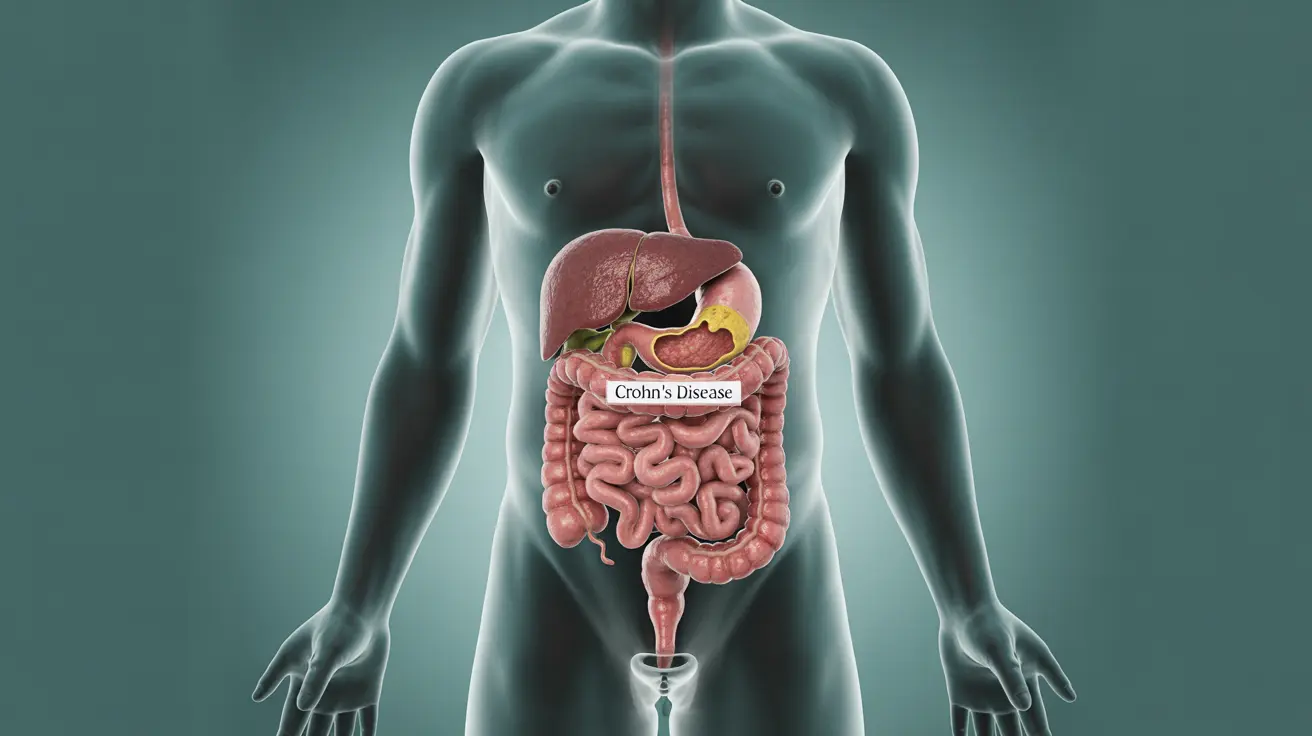A Crohn's disease blockage, also known as a bowel obstruction, is a serious complication that can significantly impact patients living with inflammatory bowel disease (IBD). When inflammation and scarring cause the intestinal walls to narrow, it can lead to partial or complete blockages that require immediate medical attention. Understanding the signs, symptoms, and treatment options is crucial for anyone affected by Crohn's disease.
This comprehensive guide will help you recognize the warning signs of a Crohn's blockage, understand when to seek emergency care, and learn about available treatment options and prevention strategies.
Recognizing the Signs of a Crohn's Disease Blockage
Early recognition of blockage symptoms is essential for prompt medical intervention. Common warning signs include:
- Severe abdominal cramping
- Persistent nausea and vomiting
- Abdominal swelling or bloating
- Complete inability to pass gas or stool
- Loud bowel sounds
- Loss of appetite
These symptoms often develop gradually but can sometimes appear suddenly, particularly in cases of complete obstruction. If you experience several of these symptoms simultaneously, it's crucial to seek immediate medical attention.
Diagnosis and Emergency Care Guidelines
Healthcare providers use several methods to diagnose a Crohn's blockage, including:
- CT scans or MRI imaging
- X-rays of the abdomen
- Physical examination
- Blood tests to check for inflammation markers
- Ultrasound imaging
Seek emergency care immediately if you experience severe abdominal pain, persistent vomiting, high fever, or complete inability to pass gas or stool. These symptoms could indicate a medical emergency requiring immediate intervention.
Treatment Approaches for Crohn's Blockages
Conservative Management
In some cases, partial blockages may be managed through conservative treatments, including:
- Bowel rest (temporarily stopping solid food intake)
- Clear liquid diet
- IV fluids for hydration
- Anti-inflammatory medications
- Pain management
Surgical Intervention
When conservative treatments aren't effective or in cases of complete obstruction, surgery may be necessary. Surgical options might include:
- Strictureplasty to widen narrow areas
- Bowel resection to remove severely damaged sections
- Emergency surgery for acute complications
Preventing Future Blockages
While not all blockages can be prevented, several strategies can help reduce their occurrence:
- Maintaining regular medical check-ups
- Following prescribed medication regimens
- Adhering to dietary recommendations
- Avoiding trigger foods
- Managing stress levels
- Staying well-hydrated
Frequently Asked Questions
What are the common symptoms of a Crohn's disease blockage or intestinal obstruction?
Common symptoms include severe abdominal pain, persistent vomiting, abdominal swelling, inability to pass gas or stool, and loud bowel sounds. These symptoms often worsen over time and may be accompanied by fever and loss of appetite.
How is a Crohn's bowel blockage diagnosed and when should I seek emergency care?
Diagnosis typically involves imaging tests like CT scans, X-rays, and MRIs, along with physical examination and blood tests. Seek immediate emergency care if you experience severe abdominal pain, persistent vomiting, high fever, or complete inability to pass gas or stool.
What treatment options are available for managing Crohn's-related intestinal blockages?
Treatment options range from conservative management (bowel rest, IV fluids, medications) to surgical interventions like strictureplasty or bowel resection. The choice of treatment depends on the severity and nature of the blockage.
Can Crohn's disease blockages be prevented and how can ongoing disease management reduce the risk?
While not entirely preventable, the risk of blockages can be reduced through proper disease management, including medication adherence, regular check-ups, dietary modifications, and stress management.
What complications can arise from untreated intestinal blockages caused by Crohn's disease?
Untreated blockages can lead to serious complications including bowel perforation, peritonitis, severe infection, and in extreme cases, life-threatening conditions. Prompt medical attention is essential to prevent these complications.




